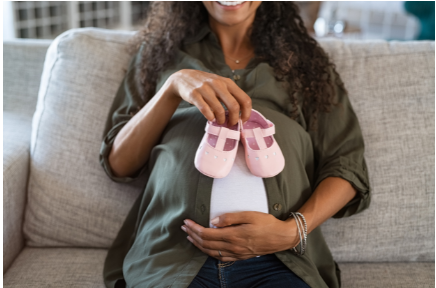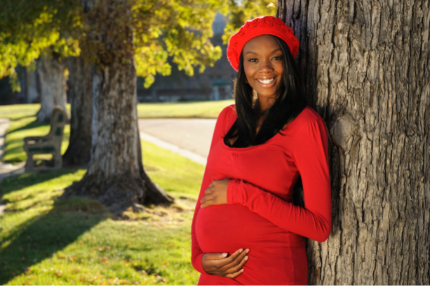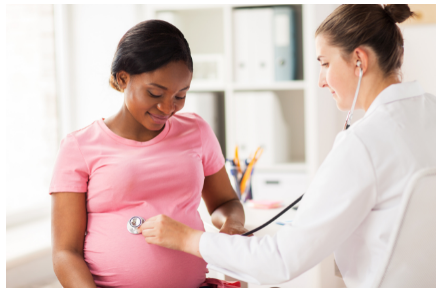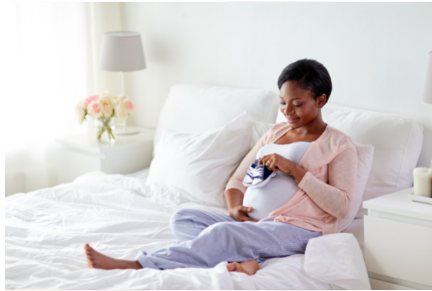
![]() Ginika Oluchi okekeMedical tourismJune 14, 2021
Ginika Oluchi okekeMedical tourismJune 14, 2021
Planning to have a baby abroad? We’ve got you covered as this article explores all there is to know about haing your baby in another country.
Travelling to another country for the purpose of childbirth is called birth tourism. There are so many reasons people engage in birth tourism which has grown to be a popular practice in today.
The most common purpose is usually to obtain foreign citizenship for the child and the potential benefits of child to live in the foreign country someday.
This is especially for countries that give birth citizenship to babies born on their soil. Other reasons may be to access more advanced healthcare, for vacation, etc.

Thus, it is not out of place to hear a couple wishing to have a baby abroad. In cases where it is not wishful thinking, the couple is usually confronted with many questions and assumptions around the process
It is one thing to want to have a baby abroad and another to completely go through with the plan with little or no qualms.
Irrespective of the place you are having your baby; childbirth is not an easy task. The unforeseen challenges and stressors that emerge particularly for the birthing parents can be overwhelming.
This article will show you important things to consider when planning to have a baby abroad.
This may come off as a rhetorical question, but it is not. The decision of your child’s potential birth country may not be an easy one to make. It gets even more contemplative when you truly consider why you would want to give birth in that country. It is imperative that you, either as an individual or a couple is convinced on your country of choice and what makes it special to you, because it is just not enough to want to give birth in “XYZ” country for the sake of it.
As you are planning to have a baby abroad, remember every country has her policies regarding birth tourism. The mistake a lot of birth tourists or birth tourist enthusiasts make is not duly examining the policies of the choice country about birth tourism. This often results to unexpected hitches or total mission abortion.
One of the things that can help you make the right decisions is to make adequate enquiries from the embassy or carry out a quick research on the internet concerning current policies on birth tourism for your country of choice. It is common knowledge that a country like the United States of America has reviewed its policy on birth tourism.

It doesn’t end with just picking a country to want to give birth in simply because they offer birth citizenship. Presently, a lot of countries only allow birth citizenship for a restricted number of other countries. It helps to find out if your country is granted dual citizenship with the choice country.

It is natural to be carried away by the gains and benefits of giving birth abroad. But that shouldn’t replace a careful consideration of how the laws, particularly tax laws may affect their citizens living abroad.
For instance, some countries tax the global income of an individual in which case, the individual is expected to pay taxes that is earned beyond its borders of the country for which he/she is a citizen.
Countries like the United States of America, China, Chile, Mexico, India, etc tax global income. If you plan to give birth in any of these countries or have already done so, it is important that you consider how this system will affect your child in the long run.

Checking your delivery options abroad is another essential thing to consider before going through with the plan. It is possible that you may not be very okay with the birth practices in the country.
Hence, endeavor to double check on the process of delivery and most importantly the cost when you want to have a baby abroad. You can also consult birth tourism experts for cost information and country options as well. This service is free.
The process can be challenging for individuals and for couples but knowing what to consider and having the right expertise to lean on can help reduce the burden.
Telemedicine gives you access to medical professionals services and facilities. As most expecting mothers are considered to be in a state that can be referred to as immunosuppressed and thus more susceptible to COVID or other infections, telemedicine is a way to get medical advice that you will need throughout your pregnancy journey.
Just from the comfort of your home, through information and communication technology, your conditions are diagnosed, treated, and followed on without having to inconvenience yourself that much. Telemedicine offers mutual trust between medical professionals and you. Do not hesitate to consult a doctor for your international medical authorization, advice on the best ways to take care of yourself, and the growing bundle of joy in your womb.
You have to think and research your ability to work remotely. It is understandable that most work employers and not all have maternity and paternity leave as a delightful moment for their workers and offer paid.
With this in mind, enquire to have the information, on how you will fund your plan before sojourn on to have a baby abroad. Medical care cover may require you to be within the country that you wish to birth to your child 4-8 weeks before the arrival of the baby and a minimum of 6 weeks postpartum summing up to 3 months.
It will do you good if your employer allows remote work where you can work, receive your wages and also paid paternity leave. To venture into this plan, consult with the human resource personnel, and find out how it works in your workplace.
You should not forget to contact the travel agents on the policies for pregnant customers, because as pregnancy approaches beyond 36 weeks, international airlines will not approve you to travel by air. Ensure to obtain a hard and electronic copy from your doctor stating your pregnancy due date and that you are safe to fly.
2. How will you pay?
Finding out the cost and how you will pay will help planning to have a baby abroad work effectively. Having a birth abroad generally requires paying upfront and some healthcare facilities may not let you leave the facility with your baby until the hospital charges are fully paid.
Pre-pay for some hospital packages such as private maternity room, shared room, natural delivery choice, Caesarean section, home birth, and birth centre can be done before admittance.
Having an idea in advance of what some of the options in the package cost will help you plan better. The idea will determine if you have to change some cash to the local currencies, or sufficiently load your credit card for easy transactions.
It will be counterwise to alert the medical insurance on the invoice for approval. The same goes with the credit card division, information about your plan to have a baby abroad and the costs involved, avoiding the block of your credit card when large transactions are made.
3. What are your options for emergency care?
As you decide on the country where you will birth your baby, endeavour to know how care will turn out when things go sideways especially where you do not speak and understand their local language. You need to know and understand how the healthcare facility and birthing policies work before signing up to go there.
Inquire from the provider ahead of the journey to familiarize yourself and also ask some important questions, such as “In the event of a difficult scenario, what is the quality of emergency care? Can my birthing companion come into the delivery or surgery room? What is it like to be in ICU with my baby? In case of emergency, does the hospital have NICU for the baby, or will there be a transfer to another medical facility?
If you can talk to other individuals who have planned to have a baby abroad and have chosen the particular country as you. Learn from them and consider their recommendations.
This goes without saying that planning to have a baby abroad is considered an elective decision; therefore some medical insurance institutions may not cover all the global costs emanating from the overseas birthing plans. Make in-depth inquiries to understand their policies and offers when it comes to planning to have a baby abroad. Also ensure that your medical insurance will be able to cover or reimburse the expenses incurred in normal delivery and any emergency that may arise for you and your baby.
Inquire how emergency evacuation is applied and how you can access it in any worst-case event.

4. What paperwork do I need to take along and as well receive throughout the process?
The paperwork that involves the welcoming of your bundle of joy can be overwhelming. In the process of applying for medical visas as its applies to certain countries, you will be required to submit proof of affordability involving proof of bank balances, proof of comfortable accommodation, and financial statements.
In some cases, the local hospital may request the presentation of some documentation before the baby is born like a hard and electronic copies of medical records. The documentation can be the biological parents’ passports and marriage certificates.
As the baby is born there will be a need to apply for the baby’s passport, and or citizenship certificate in whichever case it may be. If you are a citizen of another country, there may be some paperwork in the embassies or consulates in birth registration procedures.
Note that the “right of soil” or automatic citizenship irrespective of parents’ citizenship may not be applicable in some countries. Delivery of your baby in some foreign country, in many cases does not initiate automatic baby citizenship. “Right to soil” applies to an extent in about 64 countries; find out what their requirements and processes are. The documentation to acquire a baby’s citizenship is also a thing on your list while planning to have a baby abroad.
Another aspect you should not ignore while planning to have a baby abroad is that after the birth of your baby, you do not just leave without completing the necessary documentation. The documentation processes could impact the length of time you will stay in the country.
5. Where will you get birth and postpartum supplies?
As the delivery date approaches, few items are needed to have urgently which include baby diapers, nursing bras, nipple creams, sanitary pads, breast pads, and baby formula. Then if you are deciding on doing exclusive breastfeeding, you have some alternative items to help especially a breast pump to help extract breast milk if the need arises.
The birth and postpartum supplies are essential and you will need to check if you will your desired brands along or purchase them locally.
As you are planning to have a baby abroad and creating a budget and checking price differences, remember the electrical voltage compatibility and the socket designs could differ.
6. What are the best countries to give birth in?
When you are expecting your baby and looking forward to becoming a mother, you will agree that even the bravest women experience anxiety. Happiness, health, and security are the three things that all new mothers desire for their kids.
Naturally, all of the aforementioned are significantly impacted by where you live in the world. Which locations are the safest for giving birth, then? Let’s go through some countries and establish their level of safety and medical expertise in maternity care.
Japan has a remarkably low infant mortality rate and is among the three safest countries in the world to be born, according to UNICEF. The most recent data shows an extremely low rate of 0.18%. In Japan, almost 90% of expectant mothers consult a doctor by the time they reach the 20-week milestone. Additionally, these women receive a pregnancy badge, which could entitle them to benefits like priority seating when out in public.
According to UNICEF, one of the safest locations to be born is Iceland. As long as you have Icelandic health insurance, having a child in this nation comes with no cost. This is one of the key perks. Women are free to select the hospital or birthing center of their choice.
Iceland’s newborn mortality rate is 0.16%, which is likewise low. Women spend a few hours or days in the hospital receiving round-the-clock care after giving birth.
One of the safest places in the world to give birth is Singapore. The country provides MediShield Life, universal health care, to all of its citizens. Though; this health care does not cover C-sections or general maternity expenses.
Additionally, all infants in the nation are eligible for the MediSave award, which is worth S$4,000 (about N3,000000) and assists with any additional medical expenses for the child. Its excellent medical care system may be one reason for the nation’s low infant mortality rate of 0.21%.
Norway women living in Norway who are enrolled in the National Insurance Scheme are entitled to free maternal health care. Pregnant women are entitled to a pregnancy benefit that pays for their living expenses if they must quit working because it puts the unborn child at risk. The infant mortality rate in the nation is likewise low, at 0.2%. In addition, during their first year of life, newborns receive free medical examinations and immunizations.
Another safe country to have a baby is Finland every new mother in Finland receives a “baby box” including necessities for childcare, such as bodysuits, bedding, baby products, and outdoor clothing. This peculiar custom, which originated in the 1930s, seeks to provide an equal opportunity for all children to start life. Within the box is a little mattress that serves as a child’s cot during the first few months of life. The nation has one of the lowest infant mortality rates (0.19%) among the safest places to give birth.
7. Which country is best to have a baby as a foreigner?
You may consider the aspect of citizenship when planning to have a baby abroad, and citizenship can be granted by either the right of soil or the right of blood to newborns. In the right of blood case, children obtain citizenship via their parents, so the child will inherit the citizenship that the parent or parents possess.
In the right to soil, the newborn will be granted citizenship according to their place of birth. Both of these ideas hold true in various nations.
Parents and siblings of an infant who was born in a nation that practices jus soli can apply for permanent residency once the child has been granted citizenship. Being a citizen’s immediate relative typically provides a quick route to citizenship as well.
Considering birth tourism, most people choose the United States and Canada because of their extensive social services and good living standards. And also, some countries, like Brazil and Mexico, offer simpler citizenship procedures in comparison to many other nations. They are also popular destinations for birth tourists. The countries mentioned above are the only favourable countries for foreigners; there are just suggestions because birth tourism is what you can plan in consideration of your preference.
8. What country is the cheapest to have a baby?
When you consider the costs of having a baby abroad, you will want to make inquires to confirm how you will go about it. Delivery expenses differ significantly across the countries. However, when you do your research, you find that the expense of having a baby varies greatly between countries.
The most expensive places to give birth are the United States and Japan, but keep in mind that delivery costs are roughly six times higher in Japan than they are in the United States of America. While the least expensive countries to consider having a baby in terms of costs are Canada, Russia, South America, and South Africa.
The average cost of giving birth in the United States is N10,808,000. However, a C-section will cost you N16,106,000. Japan, with a stunning N61,810,000 is the most expensive country in which to give birth, however, Japan is regarded by many as one of the safest countries in which to give birth.
In Canada, giving birth will cost you on average N3,195,000, and a C-section costs N5,980000. In contrast, having a baby will cost you about N1,200,000 in South Africa. The cost of having a baby in the U.K. is approximately half that in the United States of America, at N4,500,000. Giving birth is much less expensive in Germany and France, costing just over N2,000,000.
Just note that there are numerous factors that could contribute to the extreme variations in the costs of having a baby in the countries mentioned above. A few factors are the price of insurance, the quality and accessibility of medical care, and so forth, so choose wisely.
9. Which type of birth is the cheapest?
One of the most significant and often expensive experiences in life is becoming a parent. But the type of delivery you choose can affect the cost of having a baby abroad. If you have medical care to cover the birth of your baby, it can save you a lot money.
Vaginal births are typically less expensive than caesarean deliveries, irrespective of whether medical care is involved or not. Also, the typical hospital stay for a vaginal birth is 48 hours, while the typical stay after a caesarean section is 96 hours. This means that the length of stay contributes to the costs.
10. Which country is the best for new parents?
As a new parent planning to have a baby abroad, you may be looking for a country that will offer a better package for individuals stepping into the new role of being parents to their little bundle of joy. Well, Finland is considered the best country to give birth and raise children due to the country’s large maternity packages, which are awarded to new parents, and its lengthy parental leave policy.
11. When is the safest time to travel as a pregnant woman?
It is common for pregnant women to travel, and many of them do. However, it is crucial to consider any issues that might arise when traveling abroad. The international policy for pregnant women travelling is that the safest period to travel is during the second trimester of pregnancy, which lasts from weeks 14 to 28. The reason being that at that stage of pregnancy, the chances of experiencing early labour or spontaneous abortion (miscarriage) are low.
Additionally, many doctors and midwives recommend staying close to home during the third trimester (28 to 40 weeks) due to potential complications like elevated blood pressure, phlebitis, and false or preterm labour. In general, women are prohibited from using airplanes for domestic travel after 36 weeks and for foreign travel after 28 to 35 weeks.

Thinking of having a baby abroad?
KompleteCare takes the burden off you by providing you the right information to make the right decisions. Through telemedicine all your needs are covered. Learn more at Oversea Medical Travel
Allen, N. (2023). Giving birth abroad? Here are 7 things to consider.
Doheny, K. (2023). Safe flying while pregnant.
Grainger, C. (2023). The best countries in the world for giving birth.
Health Encyclopedia. International travel while pregnant or breastfeeding.
MilSpouseFest. (2022). 5 lies about having a baby overseas (and the truths behind them).
Smarttravellers. (2021). Advice for pregnant travellers.
Steig, C. (2020). It’s ‘almost free’ to have a baby in Finland-and feels like ‘the whole country is providing for a child.’
Wanderes Wealth. (2023). Birth tourism: Get citizenship and permanent residency.
Willets, M. (2022). This interactive map shows the cost of childbirth worldwide.
healthcareFebruary 27, 2025
healthcareAugust 20, 2025








